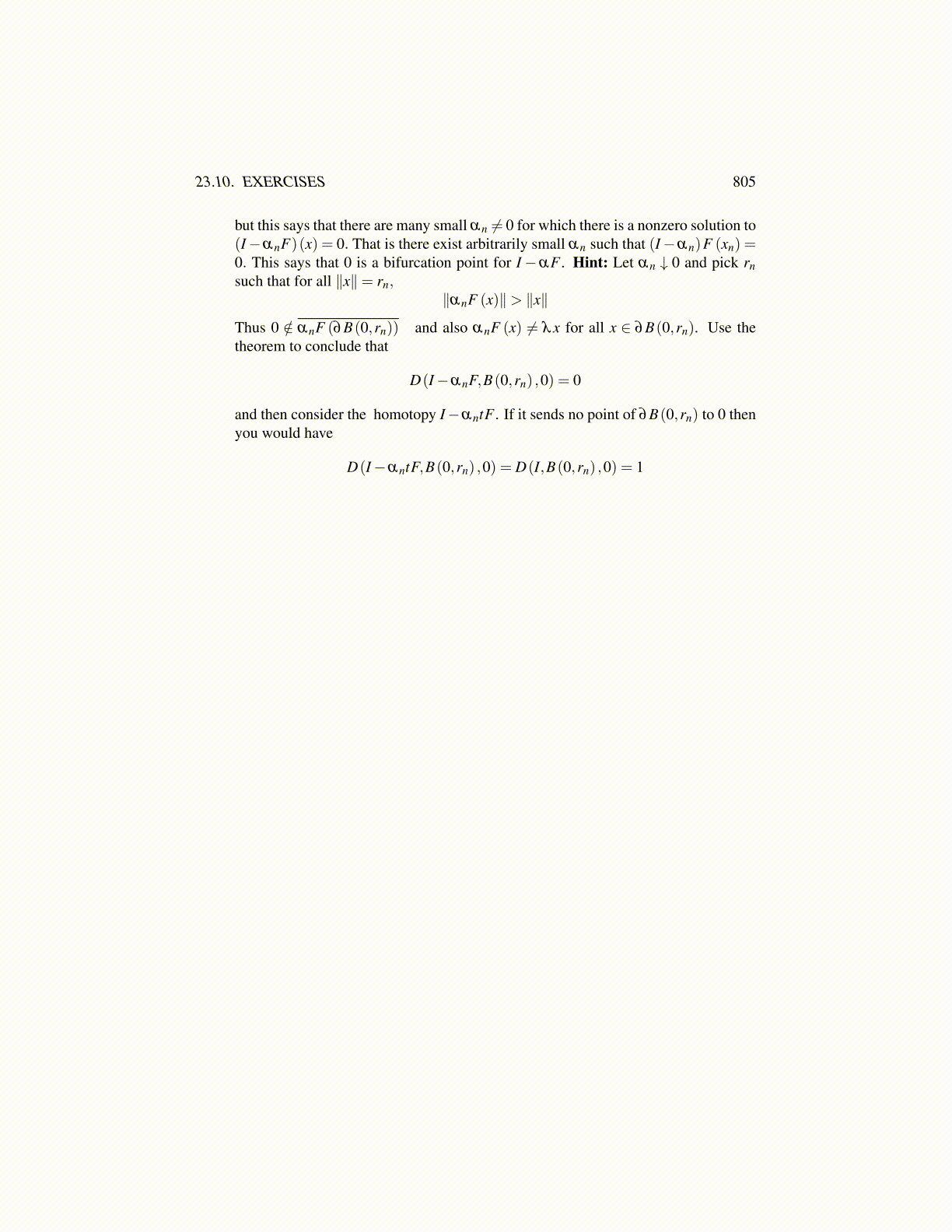
23.10. EXERCISES 805
27. This problem is from [43] Recall Theorem 23.9.11. It allowed you to say that
D(I−F,Ω,0) = 0
provided 0 /∈ F (∂Ω) and λx ̸= Fx for all x ∈ ∂Ω,λ ∈ [0,1]. This was for F compactand defined on an infinite dimensional space X . Suppose now that F is compact andF : Ω̄→ X where 0 ∈Ω an open set in X . Suppose also that F (0) = 0 and that
lim infx→0
∥F (x)∥∥x∥
≡ limr→0+
inf{∥F (x)∥∥x∥
: ∥x∥ ≤ r}= ∞
Show that there is a sequence αn → 0 each αn ̸= 0, and for some xn ̸= 0,xn −αnF (xn) = 0. Note that when α = 0, there is only one solution to (I−αF)(x) = 0,but this says that there are many small αn ̸= 0 for which there is a nonzero solution to(I−αnF)(x) = 0. That is there exist arbitrarily small αn such that (I−αn)F (xn) =0. This says that 0 is a bifurcation point for I−αF . Hint: Let αn ↓ 0 and pick rnsuch that for all ∥x∥= rn,
∥αnF (x)∥> ∥x∥
Thus 0 /∈ αnF (∂B(0,rn)) and also αnF (x) ̸= λx for all x ∈ ∂B(0,rn). Use thetheorem to conclude that
D(I−αnF,B(0,rn) ,0) = 0
and then consider the homotopy I−αntF . If it sends no point of ∂B(0,rn) to 0 thenyou would have
D(I−αntF,B(0,rn) ,0) = D(I,B(0,rn) ,0) = 1